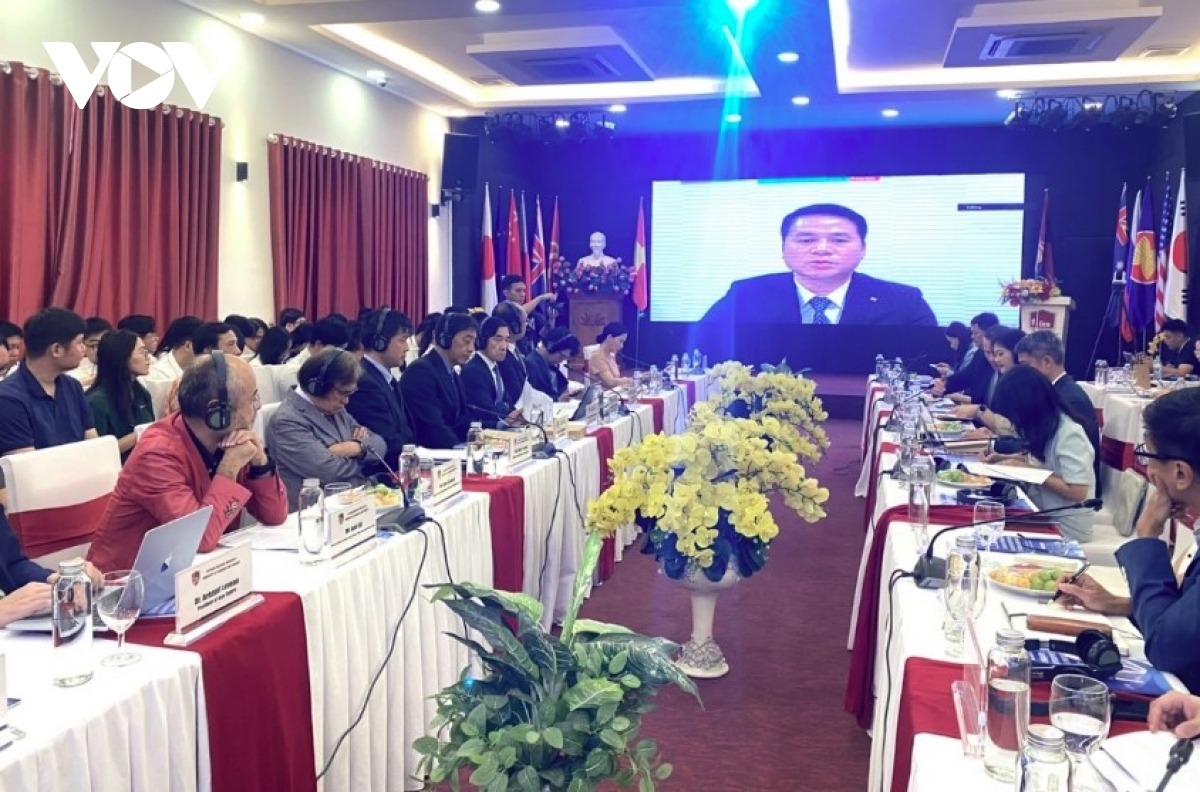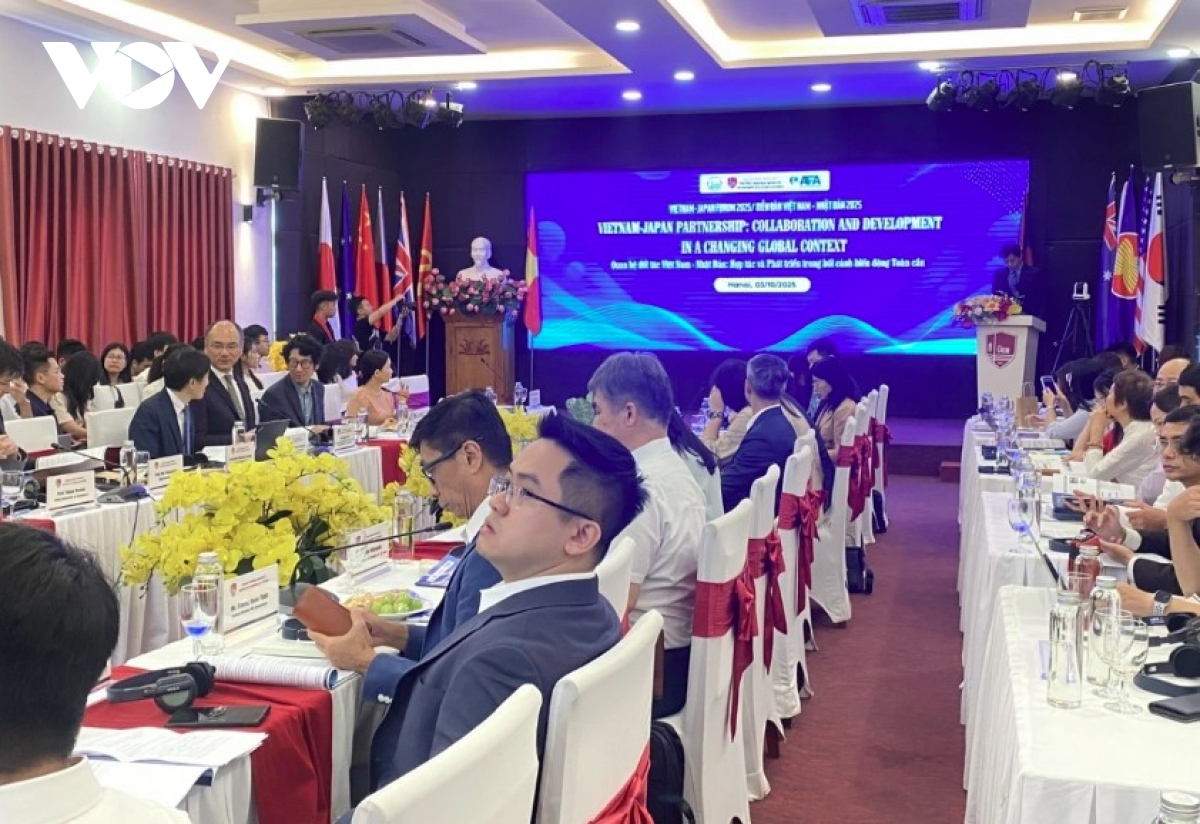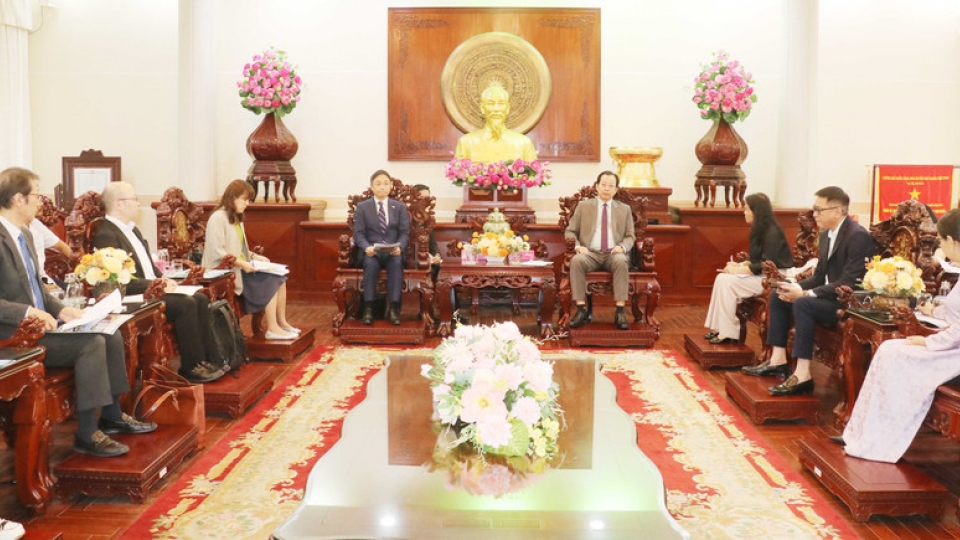Forum spotlights Vietnam-Japan comprehensive partnership in changing world
VOV.VN - The University of Economics under Vietnam National University, Hanoi on October 3 hosted the Vietnam-Japan Forum 2025 under the theme “Vietnam–Japan partnership: Collaboration and Development in a Changing Global Context,” marking the 52nd anniversary of diplomatic relations and two years since Vietnam and Japan elevated their ties to a comprehensive strategic partnership.

In his speech, Vietnamese Ambassador to Japan Pham Quang Hieu praised the significance of the 2023 upgrade of relations and underlined Japan’s commitment to cooperation in digital transformation, green transition, innovation, and science and technology, supporting Vietnam’s goal of becoming a developed country by 2045.
Trade Counselor Ta Duc Minh said that despite global economic headwinds in 2024, bilateral trade remained stable and has shown signs of recovery in 2025. Over the past seven months, two-way trade reached nearly US$29 billion, up almost 10% year-on-year. Vietnam’s exports to Japan hit US$15.15 billion, up more than 10%, while imports rose over 9% to US$13.77 billion. Key Vietnamese exports include textiles, processed farm produce, and electronics, while imports are mainly machinery, technology, and production materials. These figures, Minh said, reflect the resilience of bilateral trade.
“Vietnam–Japan cooperation is at its best period ever. The two countries coordinate closely across many fields, from central to local levels. Japan is among the few nations with a comprehensive strategic partnership with Vietnam. The Vietnamese Government gives special attention to facilitating business cooperation, promptly removing obstacles, and carrying out support measures to deepen collaboration,” Minh emphasized.
Yet challenges remain, from geopolitical tensions and financial volatility to prolonged inflation, technical barriers to farm produce, and limits in Vietnam’s processing capacity and branding. Minh said these challenges call for more flexible business strategies from both sides.
Yet challenges remain, from geopolitical tensions and financial volatility to prolonged inflation, technical barriers to farm produce, and limits in Vietnam’s processing capacity and branding. These hurdles demand more flexible strategies from enterprises in both countries.
At the forum, representatives from embassies, international organizations, businesses, and scholars discussed key drivers for the partnership going forward. They laid stress on the need to strengthen political–diplomatic relations as the foundation, maintain regular high-level exchanges to bolster trust, and augment cooperation in trade, investment, and priority sectors such as high technology, renewable energy, smart infrastructure, and the digital economy. They also called for stronger joint research, technology transfer, and an innovation ecosystem, alongside developing high-quality human resources as a central pillar.
Over the past three decades, Japan has provided Vietnam more than JPY 2,700 billion in concessional loans, nearly JPY 100 billion in grants, and about JPY 180 billion in other support. This ODA has been vital to building infrastructure, improving transport, training skilled human resources, and transferring technology, thereby enhancing Vietnam’s investment climate and attracting more foreign capital.
As of July 2025, Japan had 5,608 valid FDI projects in Vietnam with total registered capital of US$79.4 billion, confirming that Japanese investors continue to view Vietnam as an attractive and safe destination. These projects are concentrated in manufacturing, electronics, and more recently renewable energy.






